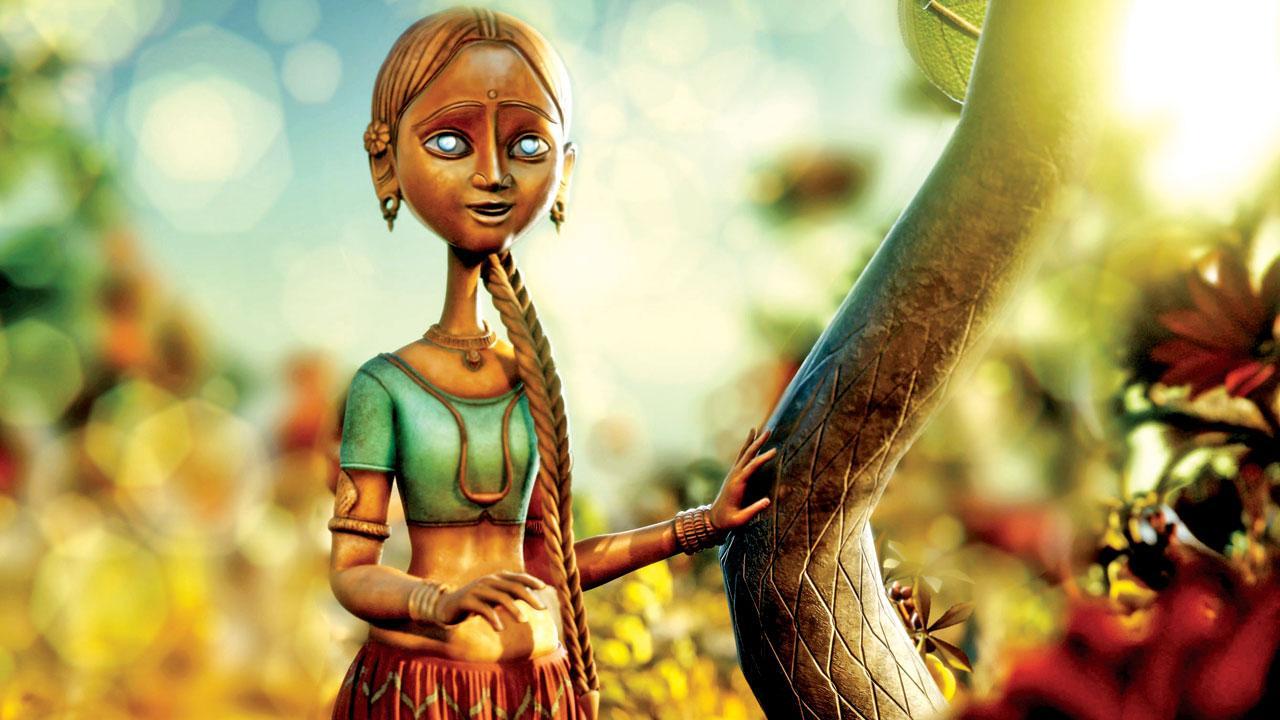Home / Mumbai-guide / Things To Do / Article /
Sharad Devarajan, Neil Gaiman on creating young Indian princess, Cinnamon
Updated On: 11 May, 2024 09:07 AM IST | Mumbai | Shriram Iyengar
The latest collaboration with celebrated author and graphic novelist Neil Gaiman marks a new direction for Sharad Devarajan’s Graphic India. Devarajan opens up about this exciting project while Gaiman reveals his fascination with Indian fables

The first look at unreleased stills of princess Cinnamon and the tiger from the upcoming feature. Pics Courtesy/Graphic India
A talking tiger walks into a palace to meet an Indian princess. Only Neil Gaiman could imagine such a surreal but fascinating plot. Earlier this week, the Indian studio Graphic India announced their next animated feature with Gaiman titled Cinnamon. The film is produced by Saren Khan, Sharad Devarajan and Jeevan Kang for Graphic India along with Gaiman and Cat Mithos via The Blank Corporation. Kang will also direct the story of the young Indian princess, Cinnamon, and her journey of self-discovery.
For Indian fans, the project is a watershed moment, considering Gaiman’s reputation as a modern-day mythmaker and creator. A prolific, inspirational writer, the Hugo and Newberry Award-winner is best known for his radical comic series, The Sandman, later turned into a critically acclaimed Netflix show in 2022. Apart from having worked with DC Comics, Gaiman also wrote the screenplay for Guillermo Del Toro’s HellBoy II (2008) as well as the acclaimed television series, Good Omens.



